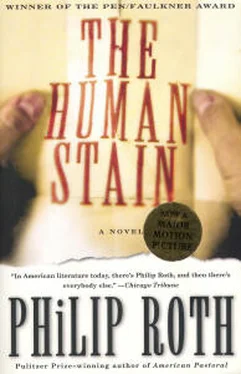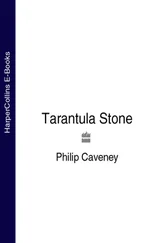It took time to face down the difficulties set by this choice, time and heronlike patience to subdue the longings for everything that had vanished, but after five years I'd become so skillful at surgically carving up my days that there was no longer an hour of the eventless existence I'd embraced that didn't have its importance to me. Its necessity. Its excitement even. I no longer indulged the pernicious wish for something else, and the last thing I thought I could endure again was the sustained company of someone else. The music I play after dinner is not a relief from the silence but something like its substantiation: listening to music for an hour or two every evening doesn't deprive me of the silence — the music is the silence coming true. I swim for thirty minutes in my pond first thing every summer morning, and, for the rest of the year, after my morning of writing — and so long as the snow doesn't make hiking impossible — I'm out on the mountain trails for a couple of hours nearly every afternoon. There has been no recurrence of the cancer that cost me my prostate. Sixty-five, fit, well, working hard — and I know the score. I have to know it.
So why, then, having turned the experiment of radical seclusion into a rich, full solitary existence — why, with no warning, should I be lonely? Lonely for what? What's gone is gone. There's no relaxing the rigor, no undoing the renunciations. Lonely for precisely what? Simple: for what I had developed an aversion to. For what I had turned my back on. For life. The entanglement with life.
This was how Coleman became my friend and how I came out from under the stalwartness of living alone in my secluded house and dealing with the cancer blows. Coleman Silk danced me right back into life. First Athena College, then me — here was a man who made things happen. Indeed, the dance that sealed our friendship was also what made his disaster my subject. And made his disguise my subject. And made the proper presentation of his secret my problem to solve. That was how I ceased being able to live apart from the turbulence and intensity that I had fled. I did no more than find a friend, and all the world's malice came rushing in.
Later that afternoon, Coleman took me to meet Faunia at a small dairy farm six miles from his house, where she lived rent-free in exchange for sometimes doing the milking. The dairy operation, a few years old now, had been initiated by two divorced women, college-educated environmentalists, who'd each come from a New England farming family and who had pooled their resources — pooled their young children as well, six children who, as the owners liked to tell their customers, weren't dependent on Sesame Street to learn where milk comes from — to take on the almost impossible task of making a living by selling raw milk. It was a unique operation, nothing like what was going on at the big dairy farms, nothing impersonal or factorylike about it, a place that wouldn't seem like a dairy farm to most people these days. It was called Organic Livestock, and it produced and bottled the raw milk that could be found in local general stores and in some of the region's supermarkets and was available, at the farm, for steady customers who purchased three or more gallons a week.
There were just eleven cows, purebred Jerseys, and each had an old-fashioned cow name rather than a numbered ear tag to identify it. Because their milk was not mixed with the milk of the huge herds that are injected with all sorts of chemicals, and because, uncompromised by pasteurization and unshattered by homogenization, the milk took on the tinge, even faintly the flavor, of whatever they were eating season by season — feed that had been grown without the use of herbicides, pesticides, or chemical fertilizers — and because their milk was richer in nutrients than blended milk, it was prized by the people around who tried to keep the family diet to whole rather than processed foods. The farm has a strong following particularly among the numerous people tucked away up here, the retired as well as those raising families, in flight from the pollutants, frustrations, and debasements of a big city. In the local weekly, a letter to the editor will regularly appear from someone who has recently found a better life out along these rural roads, and in reverent tones mention will be made of Organic Livestock milk, not simply as a tasty drink but as the embodiment of a freshening, sweetening country purity that their city-battered idealism requires. Words like “goodness” and “soul” crop up regularly in these published letters, as if downing a glass of Organic Livestock milk were no less a redemptive religious rite than a nutritional blessing. “When we drink Organic Livestock milk, our body, soul, and spirit are getting nourished as a whole. Various organs in our body receive this wholeness and appreciate it in a way we may not perceive.” Sentences like that, sentences with which otherwise sensible adults, liberated from whatever vexation had driven them from New York or Hartford or Boston, can spend a pleasant few minutes at the desk pretending that they are seven years old.
Though Coleman probably used, all told, no more than the half cup of milk a day he poured over his morning cereal, he'd signed on with Organic Livestock as a three-gallon-a-week customer. Doing this allowed him to pick up his milk, fresh from the cow, right at the farm — to drive his car in from the road and down the long tractor path to the barn and to walk into the barn and get the milk cold out of the refrigerator. He'd arranged to do this not so as to be able to procure the price break extended to three-gallon customers but because the refrigerator was set just inside the entryway to the barn and only some fifteen feet from the stall where the cows were led in to be milked one at a time, twice a day, and where at 5 P.M. (when he showed up) Faunia, fresh from her duties at the college, would be doing the milking a few times a week.
All he ever did there was watch her work. Even though there was rarely anyone else around at that time, Coleman remained outside the stall looking in and let her get on with the job without having to bother to talk to him. Often they said nothing, because saying nothing intensified their pleasure. She knew he was watching her; knowing she knew, he watched all the harder — and that they weren't able to couple down in the dirt didn't make a scrap of difference. It was enough that they should be alone together somewhere other than in his bed, it was enough to have to maintain the matter-of-factness of being separated by unsurpassable social obstacles, to play their roles as farm laborer and retired college professor, to perform consummately at her being a strong, lean working woman of thirty-four, a wordless illiterate, an elemental rustic of muscle and bone who'd just been in the yard with the pitchfork cleaning up from the morning milking, and at his being a thoughtful senior citizen of seventy-one, an accomplished classicist, an amplitudinous brain of a man replete with the vocabularies of two ancient tongues. It was enough to be able to conduct themselves like two people who had nothing whatsoever in common, all the while remembering how they could distill to an orgasmic essence everything about them that was irreconcilable, the human discrepancies that produced all the power. It was enough to feel the thrill of leading a double life.
There was, at first glance, little to raise unduly one's carnal expectations about the gaunt, lanky woman spattered with dirt, wearing shorts and a T-shirt and rubber boots, whom I saw in with the herd that afternoon and whom Coleman identified as his Voluptas. The carnally authoritative-looking creatures were those with the bodies that took up all the space, the creamy-colored cows with the free-swinging, girderlike hips and the barrel-wide paunches and the disproportionately cartoonish milk-swollen udders, the unagitated, slow-moving, strife-free cows, each a fifteen-hundred-pound industry of its own gratification, big-eyed beasts for whom chomping at one extremity from a fodder-filled trough while being sucked dry at the other by not one or two or three but by four pulsating, untiring mechanical mouths — for whom sensual stimulus simultaneously at both ends was their voluptuous due. Each of them deep into a bestial existence blissfully lacking in spiritual depth: to squirt and to chew, to crap and to piss, to graze and to sleep — that was their whole raison d'etre. Occasionally (Coleman explained to me) a human arm in a long plastic glove is thrust into the rectum to haul out the manure and then, by feeling with the glove through the rectal wall, guides the other arm in inserting a syringelike breeding gun up the reproductive tract to deposit semen. They propagate, that means, without having to endure the disturbance of the bull, coddled even in breeding and then assisted in delivery — and in what Faunia said could prove to be an emotional process for everyone involved — even on below-zero nights when a blizzard is blowing. The best of carnal everything, including savoring at their leisure mushy, dripping mouthfuls of their own stringy cud. Few courtesans have lived as well, let alone workaday women.
Читать дальше












